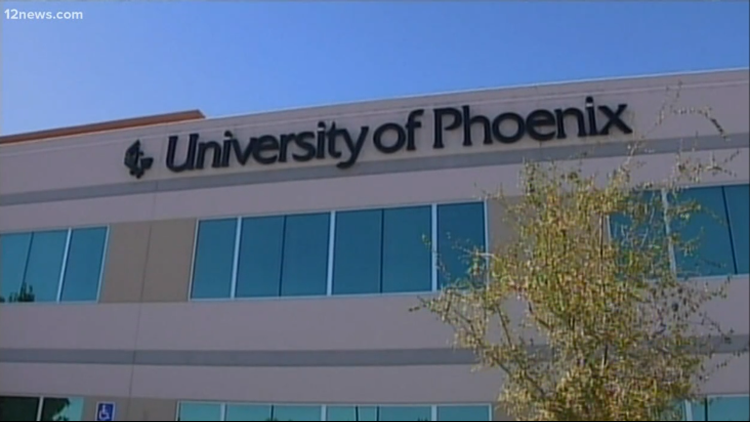

Classes were convenient, shorter in length than your normal college, and I normally walked away a little smarter than when I started. I had two years at a variety of traditional, state colleges prior to wrapping up at UOP. "I completed my bachelors degree on campus with UOP and found it to be mostly a pleasant experience. I work for a well known Health Care Provider and my degree helped get me a promotion five months later after graduating." UoP was great for me and helped me become a better manager. I'm sure you've meet students like that and they never went far, even in their careers. They either didn't care and never participated in class discussions and wanted to leave early all the time and complained about life. Those that I've seen drop out or fail, it was no surprise as they were not committed. Let me just say, overall UoP was great for me because I wanted my degree and took it seriously. Online isn't bad, it's just not as good as being together. The true connection in being physically together is better than a "Face Time" or "Skype" education. I don't think the online experience is the same as attending on campus and physically being there with your classmates and professor. For profit and non profit both have advantages and disadvantages. I went to a CC and attended a State College and didn't see this type learning environment to this degree. Overall, UoP creates thinking and shared real world experiences with your professors and other students in teams. Where professors fall short, the curriculum is what you can fall back on as the material is relevant to real world applications. Some professors are good and there are some not so good. I graduated with a 3.8 GPA and it wasn't easy. Some students only care to just "Pass" and others succeed with success when tremendous effort is put in. As others have said before, you get what you put into the program. Those rates are in combination with a 70 to 1 student-to-teacher ratio, which is incredibly high but, as those are online courses, you don’t have to worry about not being able to get into open office hours since you’ll probably be reaching out to your professors through email."The program was great. How well a college is equipped to handle those changes and new experiences is a determining factor in whether or not a student will want to return the following year. When someone is researching colleges, they cannot foresee what changes their life will take during that first year. That information is a critical indicator of the school's ability to meet the needs of its new students' freshman year. The graduation rate indicates the number of those students who completed their degree program. The term retention rate refers to the number of first-time, first-year students that continued to attend the UOPX their sophomore year. The retention rate for full-time students is 38%, while the graduation rate is low at 15%, though that doesn’t account for students who transfer and graduate from another institution. The courses are designed to help students learn, practice their knowledge, and apply them in real-world settings.
#UNIVERSITY OF PHOENIX CAMPUS HOW TO#
With the average student age being 37, this adult-focused university teaches people how to be skilled and productive both in and outside of the workplace. Families that earn less than $30,000 each year paid around $12,600, families that earned between $48,001 and $75,000 paid $14,939, and families that earned more than $110,001 paid $18,173. And, depending on how much aid you are eligible for, which is connected to your family’s annual income, you may pay more or less than that. This will help students and families budget and plan, making the tuition as dependable as the education.Īt the University of Phoenix, total expenses for a year sit at around $19,000, but the average net cost of tuition (the cost after financial aid is applied) was $12,767 in a recent academic year.

That means that the tuition paid at the beginning of the educational journey will remain the same throughout your time at UOPX. The University of Phoenix Offers a locked-in tuition program. Utilizing the financial aid available often makes attending college a viable option for future success. There are billions of dollars allotted every year in financial aid for those who qualify. With numerous financial aid possibilities like grants, loans, work-study programs, and scholarships, your tuition costs may end up being considerably lower. What many people do not realize is that the tuition rates and the sticker price is not necessarily the amount that you will pay. Whether or not a college is an affordable option is a primary focus during the college search. Most students and their families have concerns regarding the cost of higher education.


 0 kommentar(er)
0 kommentar(er)
